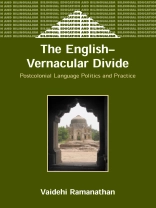This book offers a critical exploration of the role of English in postcolonial communities such as India. Specifically, it focuses on some local ways in which the language falls along the lines of a class-based divide (with ancillary ones of gender and caste as well). The book argues that issues of inequality, subordination and unequal value seem to revolve directly around the general positioning of English in relation to vernacular languages. The author was raised and schooled in the Indian educational system.
Jadual kandungan
Preface
1 Introduction: Situating the Vernacular in a Divisive Postcolonial Landscape
2 Divisive Postcolonial Ideologies, Language Policies and Social Practices
3 Divisive and Divergent Pedagogical Tools for Vernacular and English-medium Students
4 The Divisive Politics of Divergent Pedagogical Practices
5 The Divisive Politics of Tracking
6 Gulfs and Bridges Revisited: Hybridization, Nativization and Other Loose Ends
Afterword
Appendices
References
Index
Mengenai Pengarang
Vaidehi Ramanathan is Professor of Applied Sociolinguistics at University of California, Davis, USA. Her previous publications include Language Policies and (Dis)Citizenship: Rights, Access, Pedagogies (Multilingual Matters, 2013) and Bodies and Language: Health, Ailments, Disabilities (Multilingual Matters, 2009).












